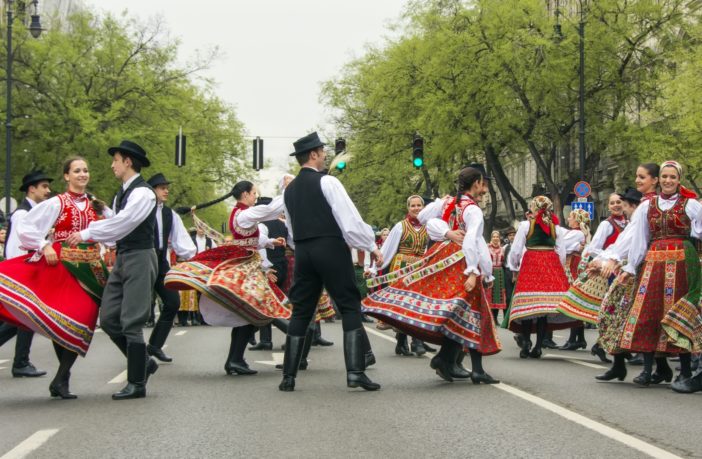Darkest Hour – Why Winston Churchill Matters
December 22, 2017Patrick J. Buchanan: Republicans Bet the Farm
December 22, 2017
Photo: Spring celebration parade in Budapest, Hungary – Andocs / Shutterstock.com
Hungary is dedicated to solving demographic problems by strengthening families instead of promoting and organising migration, the head of parliament’s welfare committee told a meeting of Visegrad Group family policy parliamentary committees on Thursday.
Every country must find its individual response to demographic challenges, Gabriella Selmeczi, of ruling Fidesz, said. It is acceptable if other countries try to counterbalance demographic decline with migrants but Hungary does not need to resort to such a method as it has a successful family policy supported by a work-based society, she said.
Selmeczi noted that Prime Minister Viktor Orban recently declared 2018 a year of families and there are further measures in the pipeline to encourage people to have more children. Marriages based on the relationship between woman and man need to be protected because they are the building blocks of society and the basis for a sustainable future, she said.
Deputy state secretary for family and demographic policy Attila Beneda said the V4 countries have a more mature and wiser approach to such crucial issues facing Europe as family policy, demographics and migration than many other countries. The experiences of the past 50-60 years enable them to give more elaborate responses to these social issues, he added.
Over the past seven years Hungary has managed to increase the fertility rate by 20 percent to 1.49 percent and the government target for 2030 is 2.1 percent, Beneda said. Hungary earmarks 4.8 percent of its GDP for family support, the highest rate in Europe, he said.
After the meeting, the committees released a joint closing document in which they state agreement on the need to strengthen the EU’s family policy. “Brussels is pursuing a policy that is not too family friendly,” Selmeczi said presenting the document. She said delegates at the conference stressed their position that a family is based on the relationship between a man and a woman, as is declared in Hungary’s constitution, and that they reject the “gender programme”.
The various delegations were in agreement that “there are only biological sexes”, she said, adding that the delegations rejected the idea of “social genders”. Selmeczi said the committees will forward their closing document to the parliaments of the EU28. She said the delegations discussed the way Hungary, the Czech Republic, Poland and Slovakia have responded to their declining birth rates. Selmeczi said they agreed that “the demographic situation is not good” in the four countries and that “something must be done about it”. The V4 countries consider it their duty to point out to Brussels that family policy in Europe must be strengthened and to steer European legislation in this direction, Selmeczi said.
https://voiceofeurope.com/2017/12/hungary-wants-larger-families-instead-of-importing-migrants/




